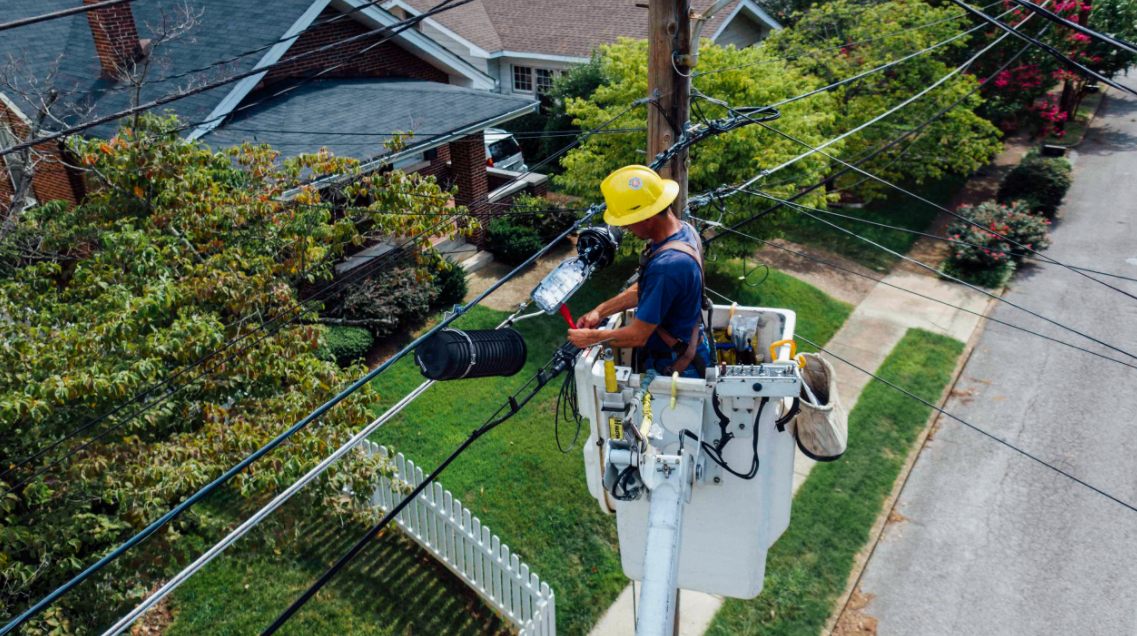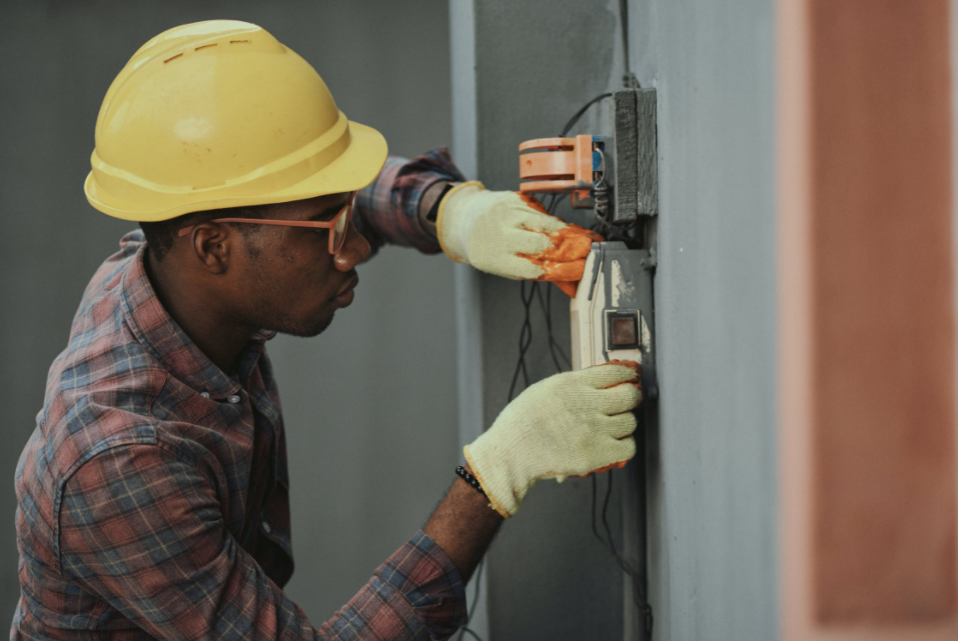Make sure you stay safe at home with these simple electrical safety tips!
 Photos By: Pexels
Photos By: Pexels
For well over a century, we have enjoyed the modern convenience of electricity to live comfortably. It lights our homes, provides warmth, and powers our ever-growing assortment of electronics. It’s so common that it’s easy to forget its inherent dangers. Over time we’ve added safety features to appliances and outlets and adopted electrical wiring standards that keep us safe.
These measures make our home’s safer. For example, when ground fault circuit interrupters (GCFI outlets) became the standard for outlets placed near water sources like in the bathroom or kitchen, the number of accidental electrocutions dropped by 83%. That’s a shocking change considering that our dependence on electricity has grown during that same time.
Enhanced safety measures and familiarity provide a false sense of security, and many DIY-savvy homeowners take on more than they can handle with home electrical projects.
The Real Deal on Electrical Safety in Your Home
There was a time before the 1970s when electrocutions and house fires were a lot more common. And while we’ve made a lot of progress at improving the safety of electrical use in our homes, there is still a risk. The National Fire Protection Association (NFPA) reports that faulty electrical wiring is still responsible for approximately 10% of all house fires. And we still see more than 400 deaths every year attributed to electrocution injuries.
The electricity in your home is a live current, and it is capable of producing significant injury and starting fires in the same way that a bolt of lightning can. Even simple tasks like replacing a bad switch or installing a ceiling fan come with some risk.
Here’s why you’re better off hiring an electrician:
● Wiring trouble can increase your risk of a house fire, putting the safety of your family at risk.
● Electrical work can be dangerous.
● Your DIY electrical project can cause your home to fail an inspection when it comes time to sell.
● Electricians have training and experience to navigate safety and compliance to get the job done right.
● You don’t have to worry about building code violations.
● Electrical work is time-intensive and takes you away from enjoying your personal time.
When it comes to home remodeling projects or fixing a pesky problem, hiring an electrician might feel like an expensive burden. But it’s one of those things that is often a controllable upfront cost to save a lot more money down the road.
Electrical Safety Tips
Electrical safety in the home goes beyond building codes and qualified workmanship. It starts with practical, everyday actions that can protect your home and your family. Here are a few tips to take note of.
Use the Right Light Bulbs
A quick trip down the lighting aisle at your local hardware store can be overwhelming. There’s an assortment of bulbs in different sizes, shapes, and wattages. While some fixtures require special bulbs, most US fixtures take a standard medium bulb or E26. That code identifies the screw type and size, with “E” indicating an Edison bulb and “26” indicating a 26mm width socket.
The problem is that the E26 bulb comes in different wattages, which indicate how bright the bulb is. A 40-watt or 60-watt bulb is common, but they go all the way up to 100 watts. Light fixtures, on the other hand, are designed for a specific wattage. Overlamping, or using a 75-watt bulb in a 40-watt-rated fixture causes excess heat build-up and quickly becomes a fire hazard.
Pay Attention to Cords
Frayed cords and tangled messes shoved behind a piece of furniture are both common electrical hazards in the home. Worn or damaged cords on appliances can lead to exposed wiring that is not properly insulated, increasing the risk of shock when someone uses that appliance. Homeowners should keep their cords tidy so that wear and tear is easy to recognize and promptly replace cords that become dangerous.
Use What You Need, Unplug What You Don’t
You probably don’t realize this, but appliances constantly draw energy when they are plugged into an outlet. Even when a device is powered off, it’s using energy as long as it’s connected to the wall. The US Department of Energy says that gaming systems, phone chargers, and other common electronics are energy vampires that cause millions of Americans to pay higher electric bills.
So, unplugging what you don’t need makes sense from a cost-savings perspective. But it’s also a safety measure. If you’re not regularly using the appliance, you won’t notice when something goes wrong. Leaving them plugged in increases the risk of overheating or damage from a power surge that can pose a bigger threat to your safety.
Remember, Water and Electricity Don’t Mix
The use of GCFI outlets has improved the safety of electrical wiring in areas that also are prone to water exposure, but safety features don’t replace common sense. Allowing moisture to build up anywhere there is an outlet, fixture, or appliance that is connected to your electrical system can spell big trouble. Avoid electrocution injuries by being vigilant about electrical safety in the bathroom, kitchen, laundry room, garage, and outdoor areas.
Get an Electrical Inspection
It’s always a good idea to be proactive. Most electricians offer routine electrical inspections as a common-sense approach to keeping up on your home maintenance. These inspections can identify problems so that you can address them before they become a serious, life-threatening situation.
In newer homes built after the 1970s, a routine inspection every 10 years or when electrical problems appear will keep things in good shape. If you live in an older home, especially if the wiring hasn’t been updated, you’ll want to keep a closer eye on things. For these homes, aim for a routine inspection of three to five years or when electrical problems appear.
Get a professional electrician on-site immediately if you notice signs of a problem like:
● Flickering Lights
● Strange Smells
● Warm Switchplate Covers or Fixtures
● Frequent Tripped Beakers
● Buzzing, Humming, Cracking, or Popping Sounds
● Any Amount of Spark
What to Remember About Home Electrical Safety
Electricity can always be dangerous. Even though it has become a common part of our lives and both homes and appliances are outfitted with dozens of safety features, the risk of injury or death is still very real. Take the time to address common electrical hazards in your home and talk with your family about the hidden dangers of unmonitored appliances and carelessness when using electricity in the kitchen or bathroom. Invest in the best safety equipment and consider using gloves while working like those from https://unigloves.co.uk/ to avoid injury. The best thing you can do to promote electrical safety is to pay attention. If you notice a sign of trouble, remember that it’s always a good idea to leave electrical work to licensed professionals.
Author Bio
Bobby Lynn, the owner of Livewire Electrical, is a fully licensed electrician in Charlotte, NC. Bobby is insured for both residential and commercial electrical projects and has over 20 years of experience in the industry.








